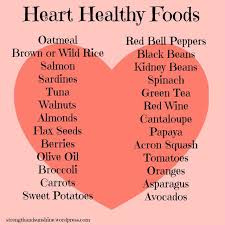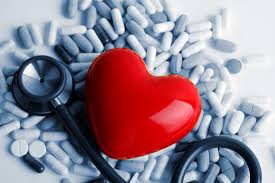
Diagnosed with Cancer? Your two greatest challenges are understanding cancer and understanding possible side effects from chemo and radiation. Knowledge is Power!
Learn about conventional, complementary, and integrative therapies.
Dealing with treatment side effects? Learn about evidence-based therapies to alleviate your symptoms.
Click the orange button to the right to learn more.
- You are here:
- Home »
- Blog »
- side effects ID and prevention »
- Atrial-Fibrillation- W/out Conventional Meds
Atrial-Fibrillation- W/out Conventional Meds

“One of the most obvious side effects of blood-thinning medication is the increased risk of bleeding. You may even be at danger of bleeding significantly from small cuts.”
Hi David. Recently diagnosed with persistent atrial fibrillation aka A-fib. I have a heart murmur and mitral valve prolapse with slight regurgitation. Cardiologist said the mitral valve issues are not a concern.
Tried cardiac ablation which put me into perfect rhythm but was back in chronic persistent A-fib in a day.
Now on Eliquis to prevent stroke. Doc says Ecotrin is not as good at preventing strokes. He wants to put my on Tikosyn which requires a 3-5 day hospital stay or Flecainide with beta blocker, or do ablation.
Ablation would have to be on left side which carries much greater risks. I do not want to do either.
I just started hawthorn, ubiquinol (coq10), GlycoTrax, and 1000mg magnesium. Any others I should look into? Doc also said to stop omegas while on the eliquis. I was taking 8000-10,000mg a day.
Can I go back on that while taking eliquis? Advice is greatly appreciated.
My BP is usually good but I am in afib all the time- A-fibber
Dear A-fibber-
I’m afraid I will not be able to answer your questions definitively. I say this because all of my therapies are evidence-based but non-conventional aka not studied or approved by the FDA. What your cardiologist prescribes is all standard-of-care, FDA approved.
I acknowledge that I am taking risks by not taking the advice of my cardiologist who I see annually after my annual echocardiogram.
For the record, the past five echocardiogram results show improving or stabilized metrics- improved ejection fraction, reduced blood pressure, etc.
While I have a great deal of respect for conventional medicine, I had an awful experience with conventional oncology and experienced serious side effects when I was on coumadin and metoprolol.
I learned that conventional heart therapies such as cardiac ablation, blood thinners and heart meds such as metoprolol have serious short, long-term and late stage side effect- see the studies below.
My persistent A-fib and cardiomyopathy was caused by cardio-toxic chemotherapy. So when I learned that I could reduce my risk ofstroke, dementia, etc. with evidence-based but non-toxic therapies, I decided that I would rather take my chances with non-toxic therapies.
Like you I take-
- CoQ10-
- Magnesium (threonate)
- Omega-3 Fatty Acids-
- Hawthorn, Arjuna
In addition to heart healthy therapies such as:
- Daily, moderate exercise-
- Heart-healthy diet-
- Sauna-
- Moderate alcohol (glass of red wine 3 x weekly)
- Vitamin B complex
- Vitamin C-
- Vitamin D3-
- Green Tea extract-
I don’t mean to dodge your question. Conventional Cardiology can do great things for people with heart problems. I’m simply trying to explain why I do what I do.
Let me know if you have any questions.
Hang in there.
David Emerson
- Cancer Survivor
- Cancer Coach
- Director PeopleBeartingCancer
Recommended Reading:
- Healing Chemotherapy-induced Cardiomyopathy-heart damage
- Healing Chemotherapy-induced Heart Valve Damage
Cardiac Ablation
What Is Cardiac Ablation?
This procedure uses energy to make small scars in your heart tissue. They stop unusual electrical signals that move through your heart and cause an uneven heartbeat (your doctor might call it arrhythmia). Cardiac ablation can also treat atrial fibrillation (AFib), a type of irregular heartbeat. If this is the case, your doctor might call it atrial fibrillation ablation.
The doctor may try cardiac ablation if medications and resetting your heartbeat — also known as cardioversion — don’t work…
Types of Cardiac Ablation
There are two ways your doctor can do ablation. Catheter ablation is the more common procedure…
Risks of Cardiac Ablation
Any procedure has risks. Problems with cardiac ablation can include:
- Bleeding or infection where the catheter went in
- Damaged blood vessels if the catheter scrapes them
- Arrhythmias caused by damage to your heart’s electrical system
- Blood clots in your legs or lungs
- Heart damage, like punctures or damaged valves
- Stroke or heart attack
- Narrowing of the veins between your lungs and heart
- Kidney damage from the dye
- Radiation
- Death
What is the risk of stroke associated with atrial fibrillation (Afib) (AF)?
“The rate of ischemic stroke in patients with nonrheumatic AF averages 5% a year, which is somewhere between 2 and 7 times the rate of stroke in patients without AF.
The risk of stroke is not due solely to AF; it increases substantially in the presence of other cardiovascular diseases. [32] The prevalence of stroke in patients younger than 60 years is less than 0.5%; however, in those older than 70 years, the prevalence doubles with each decade. [33]
The attributable risk of stroke from AF is estimated to be 1.5% for those aged 50-59 years, and it approaches 30% for those aged 80-89 years. Women are at a higher risk of stroke due to AF than men and some have suggested this may be due to undertreatment with warfarin. However, one study of patients 65 years or older with recently diagnosed AF found warfarin use played no part in the increased risk of stroke among female patients. [34]
Long-Term Blood Thinner Use: What You Need to Know
“Side effects of blood thinners
Some people shouldn’t take blood thinners. Be sure to tell your doctor if you have any of the following medical conditions in addition to AFib:
- uncontrolled high blood pressure
- stomach ulcers or other issues that put you at high risk for internal bleeding
- hemophilia or other bleeding disorders
One of the most obvious side effects of blood-thinning medication is the increased risk of bleeding. You may even be at danger of bleeding significantly from small cuts.
Be sure to tell your doctor if you experience a long nosebleed or bleeding gums, or see blood in your vomit or feces. Severe bruising is something else you may see that needs a doctor’s attention.
Along with bleeding, you may experience skin rashes and hair loss as side effects while on the drug…”



